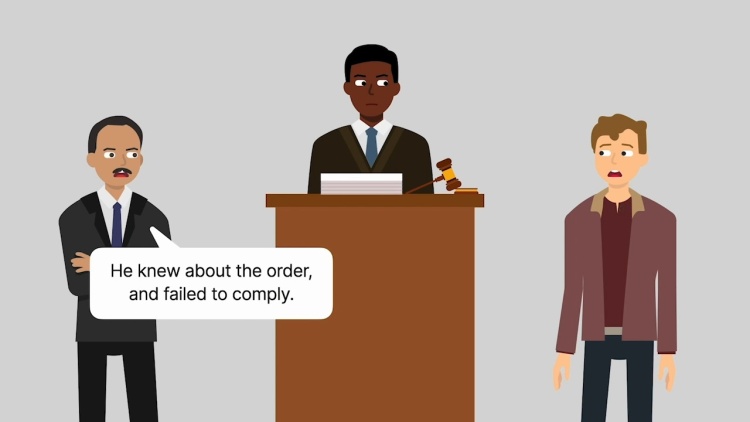Hicks v. Feiock
United States Supreme Court
485 U.S. 624 (1988)
- Written by Craig Conway, LLM
Facts
Phillip Feiock (defendant) was ordered to make monthly child support payments for the benefit of his three children. Over the course of six years, Phillip only sporadically complied with the court order and eventually stopped altogether. Phillip’s ex-wife filed a petition to enforce the child-support order. After a hearing, the trial court ordered Phillip to pay $150 per month in child support. However, Phillip failed to consistently comply and was subsequently served with a notice to show cause as to why he should not be found in contempt of the court order. Following a hearing, the court held Phillip in contempt on five of nine counts and sentenced Phillip to five days in jail on each count, for a total of 25 days. The court suspended Phillip’s incarceration and placed Phillip on probation for three years and, as a condition of his probation, ordered Phillip to pay $150 per month in child support and an additional $50 toward the arrearage. Phillip argued that state law unconstitutionally shifted to Phillip the burden of proving his inability to comply with the order, which was an element of the crime of contempt. The trial court disagreed, and Phillip appealed. The intermediate appellate court reversed, vacated the contempt order, and found that the state law violated the right to due process. The Supreme Court of California denied review. The United States Supreme Court granted certiorari to review.
Rule of Law
Issue
Holding and Reasoning (White, J.)
Dissent (O’Connor, J.)
What to do next…
Here's why 911,000 law students have relied on our case briefs:
- Written by law professors and practitioners, not other law students. 47,100 briefs, keyed to 997 casebooks. Top-notch customer support.
- The right amount of information, includes the facts, issues, rule of law, holding and reasoning, and any concurrences and dissents.
- Access in your classes, works on your mobile and tablet. Massive library of related video lessons and high quality multiple-choice questions.
- Easy to use, uniform format for every case brief. Written in plain English, not in legalese. Our briefs summarize and simplify; they don’t just repeat the court’s language.





